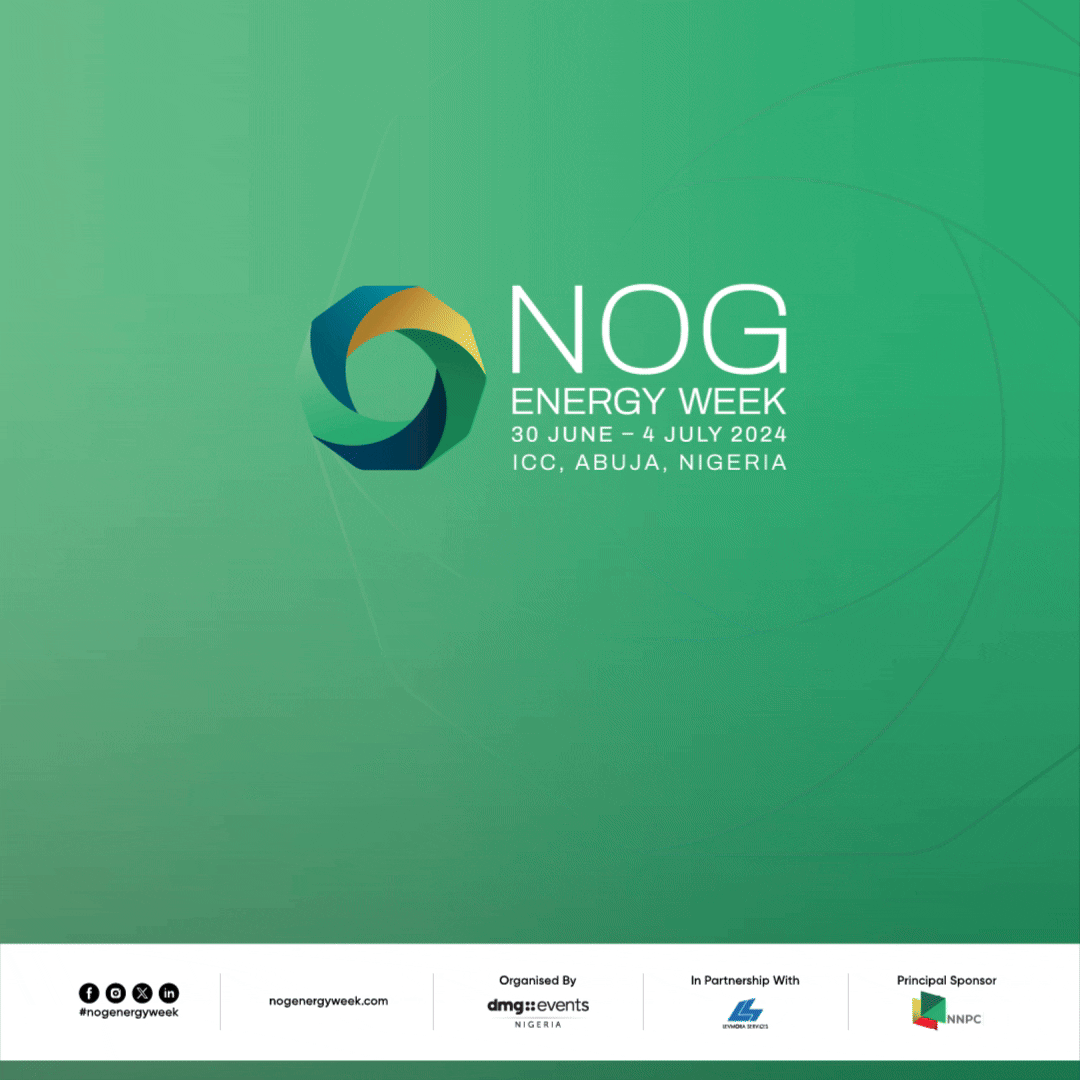Many African countries are harnessing gas and other cleaner and greener energies to drive their industrialization journey. African countries, including Ghana and Nigeria, are investing in gas infrastructure and promoting its utilization, and by extension, are addressing energy poverty and environmental challenges.
The Honourable Minister of Energy for Ghana, H.E. Dr. Matthew Opoku Prempeh, who recently confirmed his participation in the NOG Energy Week, taking place from 30 June to 4 July at the ICC, Abuja, amplified the need for competitive financing to propel natural gas projects.
Nigeria, boasting gas reserves of over 200TCF, recently announced plans to execute a gas strategy that will trigger the nation’s industrialization and economic growth. NNPC Limited’s Executive Vice President for Upstream, Oritsemeyiwa Eyesan, shared the organization’s plans to deepen domestic gas utilization for power generation in a bid to support the manufacturing sector.
To transform the energy sector in West Africa, leveraging natural gas to drive economic growth and development is key. Gas for industrialization contributes to increasing energy transition progress across the region. From revitalizing key industries to fostering innovation, the strategic focus on gas underscores a commitment to propel West Africa toward a future built on energy security and economic resilience. Through the Decade of Gas Initiative by the Nigerian government, industry leaders have continually conveyed a collaborative approach aimed at unlocking the country’s energy resources.
To drive progress in Sub-Saharan Africa’s energy market, energy stakeholders, government officials, regulators, and key industry players are convening at NOG Energy Week 2024 to deliberate on policies aimed at meeting West Africa’s energy demand. The event, themed “Showcasing Opportunities. Driving Investment. Meeting Energy Demand.” is scheduled to take place from 30 June – 4 July at the International Conference Centre (ICC), Abuja.
Speaking on what stakeholders should expect at NOG Energy Week 2024, the Country Director – Nigeria & Portfolio Director – Africa for dmg events, Wemimo Oyelana, said,
“Our commitment for almost 25 years has been to provide a platform where industry leaders can have frank conversations that proffer solutions to the different challenges the industry is facing. NOG Energy Week has contributed significantly to key policy development & implementation over the years. We look forward to having industry stakeholders discuss pertinent issues, including Attracting International and Regional Funding Into Nigeria’s Energy Sector, Utilizing the Significance of Natural Gas as the Fuel Of Choice, and Driving Industrialisation as a Catalyst for Economic Growth.
Expected government officials and industry leaders at NOG Energy Week 2024 are H.E. Heineken Lokpobiri, Minister of State for Petroleum Resources (Oil), H.E. Ekperikpe Ekpo, Minister of State for Petroleum Resources (Gas), Dr. Matthew Opoku Prempeh, Minister of Energy, Ghana, Engr. Gbenga Komolafe, Commission Chief Executive, Nigerian Upstream Petroleum Regulatory Commission (NUPRC), Engr. Farouk Ahmed, Authority Chief Executive, Nigerian Midstream & Downstream Petroleum Regulatory Authority (NMDPRA), Mele Kolo Kyari, Group Chief Executive Officer, NNPC Limited, Elohor Aiboni, Managing Director, Shell Nigeria’s Exploration and Production Company Limited, Dr. Philip Mshelbila, Managing Director & Chief Executive Officer, Nigeria LNG, Eberechukwu Oji, Managing Director and Chief Executive Officer, ND Western, Dr Ernest Azudialu – Obiejesi OFR, Chairman, Nestoil Limited, Adewale Tinubu, Group Chief Executive, Oando PLC, Julius Rone OFR, Group Managing Director, UTM FLNG Limited, Daere Akobo. F.IoD, F.IMC, CMC, Group Chief Executive Officer, PANA Holdings, among others.





